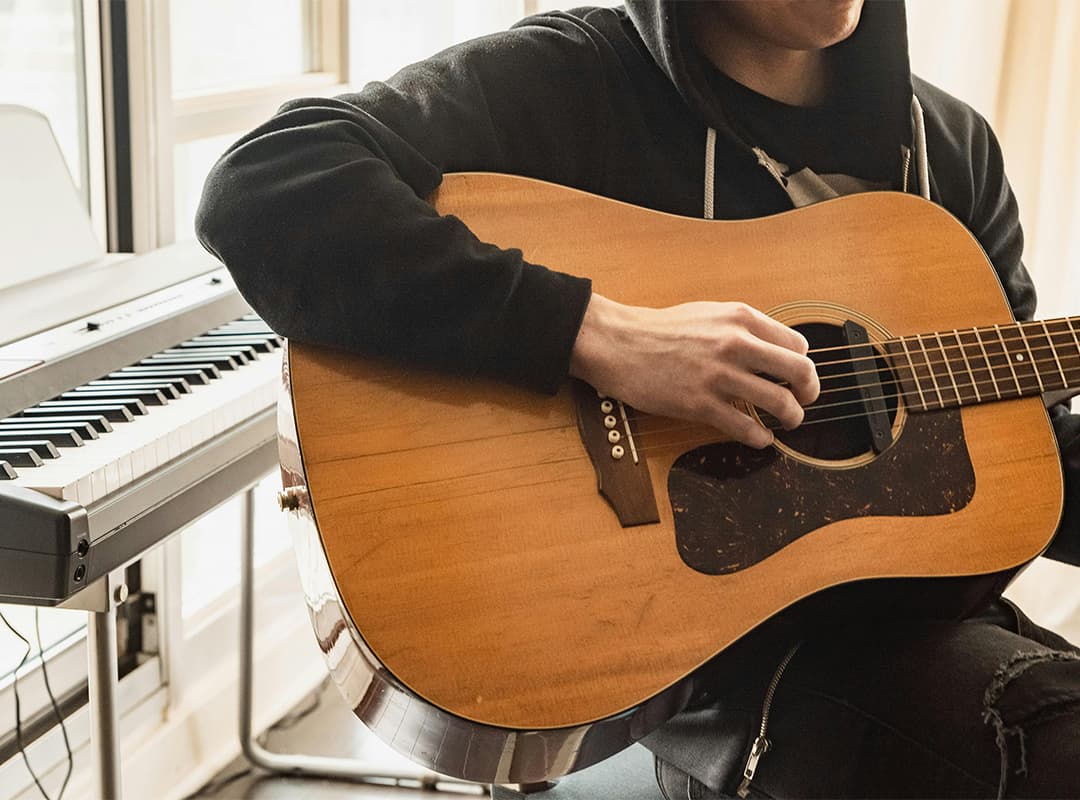Finding the right guitar teacher can significantly influence your learning experience and progress. With so many options available, it’s important to know what to look for when selecting a teacher who will best suit your needs. Here are some key factors to consider when making your choice.
1. Determine Your Goals
Before you start searching for a guitar teacher, take a moment to consider your musical goals. Are you looking to play for fun, learn specific songs, or pursue a more serious musical career? Knowing your objectives will help you find a teacher who specializes in the style or area you want to focus on.
2. Research Their Qualifications and Experience
Once you have a clear idea of your goals, look into potential teachers’ qualifications and experience. A good guitar teacher should have a solid background in music and teaching. Check if they have formal education in music, years of teaching experience, and performance credentials.
Tip: Don’t hesitate to ask potential teachers about their experience and approach to teaching. A knowledgeable teacher will be happy to discuss their background and how it aligns with your goals.
3. Teaching Style
Every teacher has a unique approach to teaching, so it’s essential to find someone whose style resonates with you. Some teachers may focus heavily on technique and theory, while others might emphasize creativity and improvisation.
Tip: If possible, schedule a trial lesson or observe a class to get a feel for their teaching style. This can help you determine if their approach aligns with your learning preferences.
4. Flexibility and Availability
Consider the teacher’s availability and flexibility in scheduling lessons. It’s important to find someone who can accommodate your schedule and offers lessons at times that work for you.
Tip: Discuss potential lesson times upfront and ensure that they can commit to a regular schedule that suits your needs.
5. Location and Format of Lessons
Think about where you’d like to take lessons. Some teachers offer in-person classes, while others may provide online lessons. In-person lessons can be beneficial for hands-on guidance, but online lessons offer convenience and flexibility.
Tip: If you’re near a venue like the Canton Palace Theater, check if there are any local teachers associated with music programs there. Sometimes, local venues have connections to qualified instructors.
6. Student Testimonials and Reviews
Looking at testimonials and reviews from other students can provide valuable insight into a teacher’s effectiveness and teaching style. Positive feedback from current or former students can indicate a teacher’s ability to connect with learners and foster a supportive environment.
Tip: Visit the teacher’s website or social media pages to read reviews, or ask for references from past students.
7. Cost and Commitment
Guitar lessons can vary significantly in cost, so consider your budget when choosing a teacher. While it’s essential to find someone within your price range, remember that the most expensive option isn’t always the best.
Tip: Discuss pricing upfront and understand any commitment required, such as a minimum number of lessons per month or cancellation policies.
8. Personal Connection
Finally, the most important factor in choosing a guitar teacher is finding someone you feel comfortable with. A good rapport will make learning more enjoyable and productive. If you don’t feel a connection during your trial lesson, it might be worth trying another teacher.
Selecting the right guitar teacher is a crucial step in your musical journey. By considering your goals, researching qualifications, and ensuring a good personal fit, you’ll be well on your way to finding the perfect instructor. With the right guidance, you’ll be able to develop your skills and enjoy playing the guitar for years to come!


